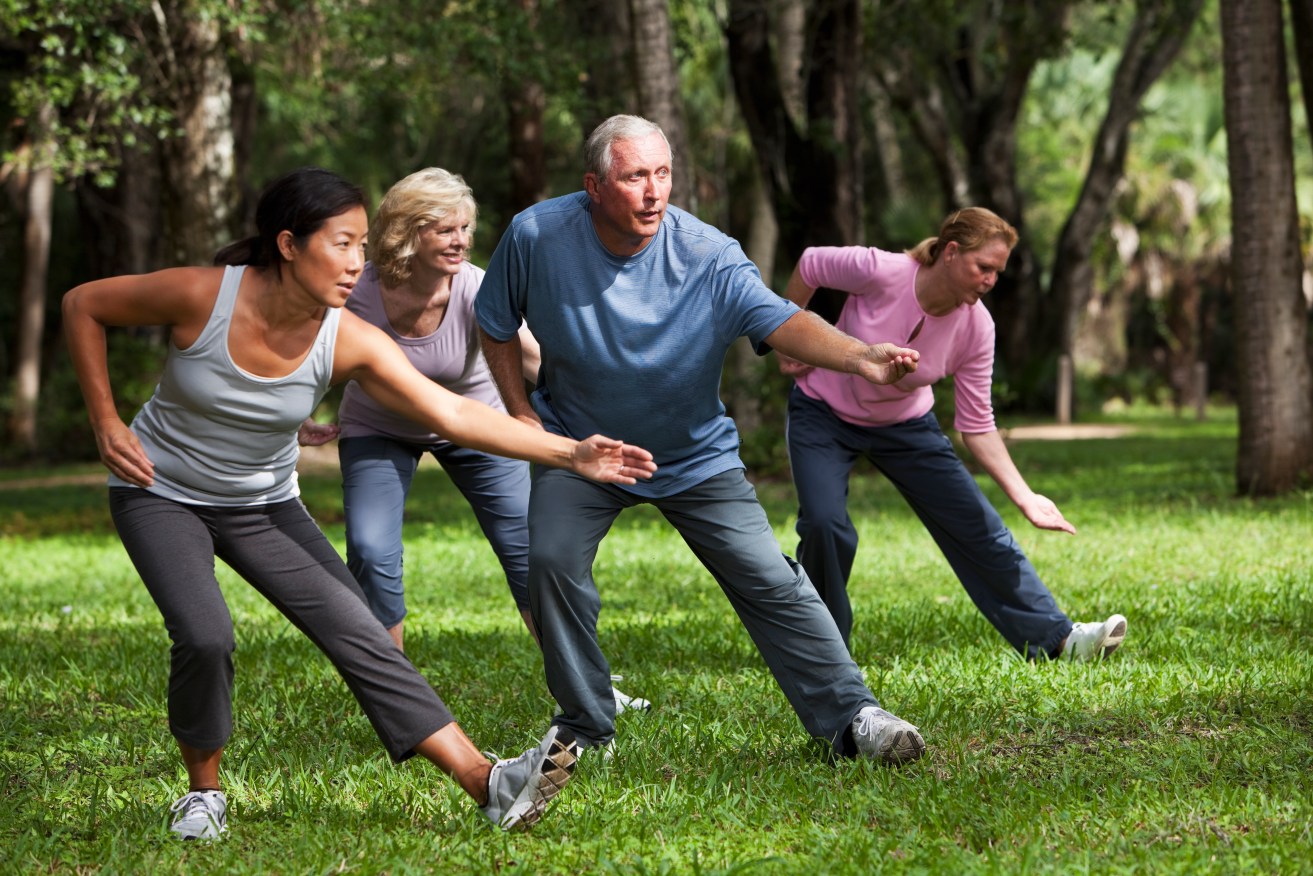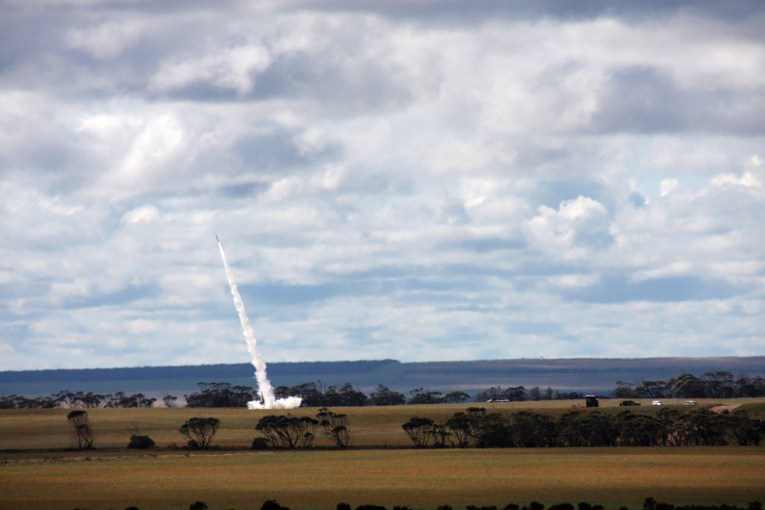Tai chi better at lowering blood pressure than aerobic exercise


Tai chi is a no-pain, plenty gain form of exercise and stress relief. Photo: Getty
You may have seen a group of people at the local park engaged in freeze-frame kung fu fighting.
This is tai chi, also known as meditation in motion.
Practitioners work through a series of poses, often slowly, with a focus on fluidity between these poses.
There are a number of different schools of tai chi, and most of them serve as great exercise for people of all ages.
The benefits of tai chi include better sleep, weight loss, improved mood and management of chronic conditions such as fibromyalgia and chronic obstructive pulmonary disease (COPD).
It’s a particularly useful practice for seniors and for people who have lost their fitness and ease of movement.
Tai chi increases body awareness, improves cognition, reduces risk and fear of falling, and eases arthritic pain.
Much of the evidence supporting tai chi’s claims has been anecdotal, but science is catching up.
There’s evidence that tai chi reduces stroke risk and promotes slower progression of Parkinson’s disease symptoms.
Recent studies have shown that tai chi is about equal to conventional exercise for reducing belly fat in middle-aged and older adults.
Better than even vigorous exercise
A new study goes one step further.
In a small supervised randomised control trial that took place over a year, participants who practised tai chi for a year, four times a week, saw bigger drops in their blood pressure than a group who did aerobics exercise overt the same time period.
This builds on a 2018 study that found tai chi was better at regulating blood pressure than brisk walking. That study involved people with high blood pressure or hypertension.
The new study, from a team of Chinese researchers, involved 342 participants aged 18 to 65 with prehypertension.
What’s prehypertension?
Think of prehypertension as a warning sign that your blood pressure is heading toward dangerous territory.
In this study, prehypertension was a systolic reading between 120 and 129 mm Hg and a diastolic pressure of 80 to 89 mm Hg.
This compares to a normal blood pressure level which is less than 120 systolic over less than 80 diastolic (less than 120/80 mm Hg).
High blood pressure levels or hypertension is a systolic reading of 140 mm Hg or higher and a diastolic reading of 90 mm Hg or higher.
The new study
In the new study, the participants were randomly assigned to a Tai Chi group or a cardio group that performed four 60-minute supervised sessions, every week for 12 months.
About half the participants engaged in supervised aerobic exercise, including jogging, climbing stairs, brisk walking and cycling.
The other group was trained to practise tai chi.
After 12 months, those in the tai chi group saw bigger drops in their blood pressure than those in the aerobic exercise group.
What’s more, nearly 22 per cent of the people who practised tai chi saw their blood pressure fall to within normal range, compared with nearly 16 per cent of people in the aerobic exercise group.
Also, fewer patients in the tai chi group went on to develop hypertension than in the aerobic exercise group.
Independent experts
According to a report at Healthline, the study’s strengths lie in its robust methodology, including its prospective, single-blinded randomised clinical trial design.
The report suggested that tai chi, as a mind-body exercise, “may offer unique benefits beyond traditional aerobic activities, such as stress reduction, improved relaxation and enhanced mental focus, which could contribute to its superior efficacy in lowering blood pressure”.
Ruth Taylor-Piliae, a professor at the University of Arizona’s College of Nursing, who was not involved in the study, told NPR: “The practice (of tai chi) tends to elicit more of a response from the parasympathetic nervous system. The parasympathetic nervous system is the network of nerves that relaxes your body after periods of stress or danger.”
She said that tai chi “kind of helps to just relax everything, and I think it’s that response that’s working towards lowering blood pressure”.








